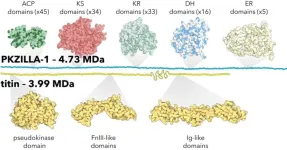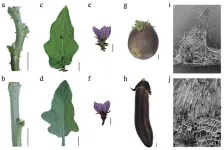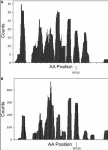American College of Cardiology issues guide for managing in-patient heart failure
Expert Consensus Decision Pathway recommends tailored therapy decisions based on clinical trajectory
2024-08-08
(Press-News.org) The American College of Cardiology has issued updated guidance on managing patients hospitalized for heart failure (HF) to provide a decision-making pathway that tailors therapy to clinical trajectory to better manage disease. The updated Expert Consensus Decision Pathway incorporates the latest evidence to provide guidance for clinicians to use at the point of care in conjunction with the 2022 ACC/AHA Heart Failure Guideline.
Heart failure refers to several conditions that can affect the way the heart works, its structure or both. Over time, heart failure makes it harder for the heart to pump enough blood and oxygen to meet your body's needs. It affects nearly 6.7 million Americans, and that number continues to increase.
Inpatient admissions for HF are associated with high mortality—20% to 30% risk of death within one year—and readmissions and subsequent health events are common. HF symptoms often improve quickly during HF hospitalization, but episodes of worsening HF can mark a fundamental change in the HF trajectory.
“Clinicians should be assessing and optimizing therapy during a hospital stay to not only provide a good clinical response in the hospital but also to address a patient’s long-term trajectory after discharge,” said Steven Hollenberg, MD, FACC, ECDP writing committee chair and director of Cardiac Intensive Care at the Emory Heart & Vascular Center. “The updated ECDP places increased emphasis on establishing all four pillars of guideline-directed medical therapy (GDMT) for HFrEF in the hospital, when possible, along with ensuring appropriate follow-up to monitor tolerance and continue medication.”
The ECDP specifically addresses management strategies in patients with different short-term
clinical trajectories in the hospital, provides updates on alternative agents and dosing strategies for diuresis, updates communications and follow-up recommendations to incorporate telehealth, and provides additional emphasis on long-term disease trajectory, including care discussions and identification of patients who may need palliative care.
The 2024 ACC Expert Consensus Decision Pathway on Clinical Assessment, Management, and Trajectory of Patients Hospitalized With Heart Failure Focused Update is published in JACC, the flagship journal of the American College of Cardiology.
The American College of Cardiology (ACC) is the global leader in transforming cardiovascular care and improving heart health for all. As the preeminent source of professional medical education for the entire cardiovascular care team since 1949, ACC credentials cardiovascular professionals in over 140 countries who meet stringent qualifications and leads in the formation of health policy, standards and guidelines. Through its world-renowned family of JACC Journals, NCDR registries, ACC Accreditation Services, global network of Member Sections, CardioSmart patient resources and more, the College is committed to ensuring a world where science, knowledge and innovation optimize patient care and outcomes. Learn more at www.ACC.org or follow @ACCinTouch.
The ACC’s JACC Journals rank among the top cardiovascular journals in the world for scientific impact. The flagship journal, the Journal of the American College of Cardiology (JACC) — and specialty journals consisting of JACC: Advances, JACC: Asia, JACC: Basic to Translational Science, JACC: CardioOncology, JACC: Cardiovascular Imaging, JACC: Cardiovascular Interventions, JACC: Case Reports, JACC: Clinical Electrophysiology and JACC: Heart Failure — pride themselves on publishing the top peer-reviewed research on all aspects of cardiovascular disease. Learn more at JACC.org.
###
END
ELSE PRESS RELEASES FROM THIS DATE:
2024-08-08
Researchers at Columbia University Mailman School of Public Health, the University of North Carolina at Chapel Hill and at the National Academy of Sciences of Ukraine used the setting of the man-made Ukrainian Holodomor famine of 1932-1933 to examine the relation between prenatal famine and adult Type 2 diabetes mellitus (T2DM). They studied 128,225 Type 2 diabetes cases diagnosed between 2000-2008 among 10,186,016 male and female Ukrainians born between 1930 and 1938.
Individuals who were exposed in early gestation to the famine had a more than two-fold likelihood of developing Type 2 diabetes compared to those ...
2024-08-08
In brief:
Disruption of the functioning of vegetation due to warming can lead to the failure of climate regulating mechanisms for millions of years.
Vegetation changes can alter the planet’s climate equilibrium.
Geological and climatic history provide insight into the effects of global warming today.
Scientists often seek answers to humanity’s most pressing challenges in nature. When it comes to global warming, geological history offers a unique, long-term perspective. Earth’s geological ...
2024-08-08
[Vienna, August 7 2024] — The ongoing war between Russia and Ukraine has led to severe humanitarian crises, including widespread food shortages. According to the United Nations World Food Programme, an estimated 11 million Ukrainians—about one-third of the population—were at risk of hunger in 2023. This crisis, exacerbated by supply chain disruptions and extreme weather events, could increase diabetes prevalence not only in Ukraine but globally, argue Peter Klimek and Stefan Thurner from the Complexity Science Hub in a commentary published in the journal Science.
Malnutrition during early pregnancy is known to elevate diabetes ...
2024-08-08
August 8, 2024—(BRONX NY)—A discovery by a three-member Albert Einstein College of Medicine research team may boost the effectiveness of stem-cell transplants, commonly used for patients with cancer, blood disorders, or autoimmune diseases caused by defective stem cells, which produce all the body’s different blood cells. The findings, made in mice, were published today in the journal Science.
“Our research has the potential to improve the success of stem-cell transplants and expand their use,” explained Ulrich Steidl, ...
2024-08-08
While seeking to unravel how marine algae create their chemically complex toxins, scientists at UC San Diego’s Scripps Institution of Oceanography have discovered the largest protein yet identified in biology. Uncovering the biological machinery the algae evolved to make its intricate toxin also revealed previously unknown strategies for assembling chemicals, which could unlock the development of new medicines and materials.
Researchers found the protein, which they named PKZILLA-1, while studying how a type of algae called Prymnesium parvum makes its toxin, which is responsible for massive fish kills.
“This is the Mount Everest of proteins,” ...
2024-08-08
Voids or pores have usually been viewed as fatal flaws that severely degrade a material's mechanical performance and should be eliminated in manufacturing.
However, a research team led by Prof. JIN Haijun from the Institute of Metal Research (IMR) of the Chinese Academy of Sciences has proposed that the presence of voids is not always hazardous. Instead, voids can be beneficial if they are added "properly" to the material.
The team demonstrated that a metal with a large number of nanoscale voids shows improved ...
2024-08-08
Scientists have discovered the gene responsible for prickles in eggplants, a trait that complicates farming. Using advanced genetic techniques, they identified the Prickly Eggplant (PE) gene on chromosome 6 and pinpointed SmLOG1 as the key factor. CRISPR-Cas9 gene editing confirmed that disabling SmLOG1 eliminates prickles, paving the way for prickle-free eggplant varieties. This breakthrough not only sheds light on prickle development but also promises to streamline eggplant cultivation and harvesting, benefiting the agricultural industry.
Eggplants, a staple crop globally, present significant challenges in cultivation and harvesting due to their prickles. These prickles, which serve as ...
2024-08-08
People eat either because they are hungry or for pleasure, even in the absence of hunger. While hunger-driven eating is fundamental for survival, pleasure-driven feeding may accelerate the onset of obesity and associated metabolic disorders. A study published in Nature Metabolism reveals neural circuits in the mouse brain that promote hunger-driven feeding and suppress pleasure-driven eating. The findings open new possibilities for developing strategies to combat obesity.
“Ideal feeding habits would balance eating for necessity and for pleasure, minimizing the latter,” said co-corresponding author Dr. Yong Xu, ...
2024-08-08
“These findings indicate that renalase-1 is a potential antigen for TCR recognition in melanoma and could be considered as a target for immunotherapy.”
BUFFALO, NY- August 8, 2024 – A new research paper was published in Oncotarget's Volume 15 on August 5, 2024, entitled, “Chemical complementarity of tumor resident, T-cell receptor CDR3s and renalase-1 correlates with increased melanoma survival.”
As mentioned in the Abstract of this study, overexpression of the secretory protein renalase-1 negatively impacts the survival of melanoma and pancreatic cancer patients, while inhibition of renalase-1 signaling drives tumor ...
2024-08-08
Key Takeaways
-Fusion has the potential to provide abundant clean energy
-One to two-year awards range from $100,000 to $500,000
In a continuing effort to forge and fund public-private partnerships to accelerate fusion research, the U.S. Department of Energy (DOE) today awarded $4.6 million in 17 awards to U.S. businesses via the Innovation Network for Fusion Energy (INFUSE) program.
The goal of INFUSE is to accelerate fusion energy development in the private sector by reducing impediments to collaboration between business ...
LAST 30 PRESS RELEASES:
[Press-News.org] American College of Cardiology issues guide for managing in-patient heart failure
Expert Consensus Decision Pathway recommends tailored therapy decisions based on clinical trajectory




